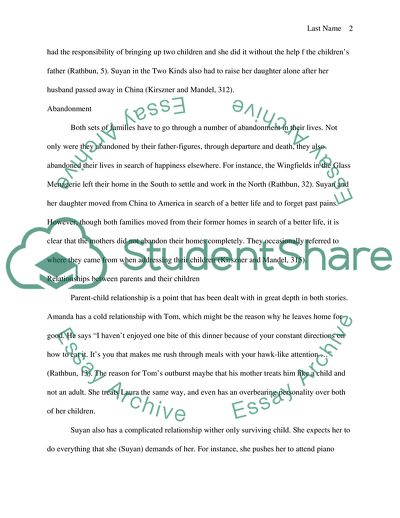Tennessee Williams' the Glass Menagerie Assignment Example | Topics and Well Written Essays - 1750 words. https://studentshare.org/literature/1743490-introduction-to-literature
Tennessee Williams' The Glass Menagerie Assignment Example | Topics and Well Written Essays - 1750 Words. https://studentshare.org/literature/1743490-introduction-to-literature.


